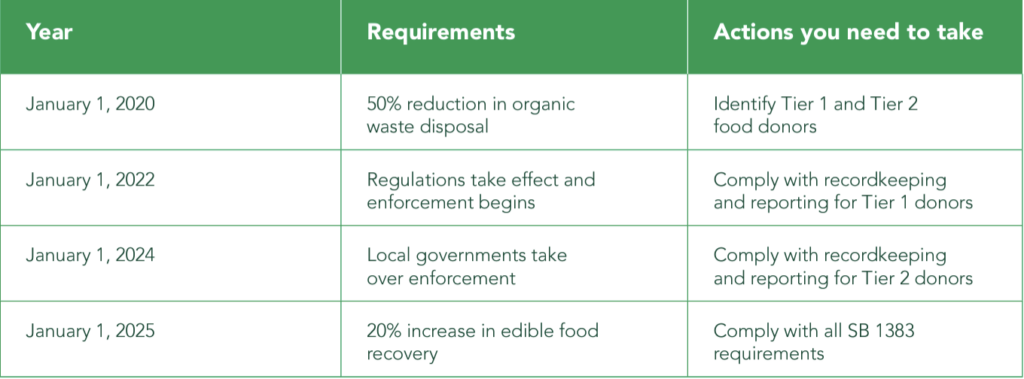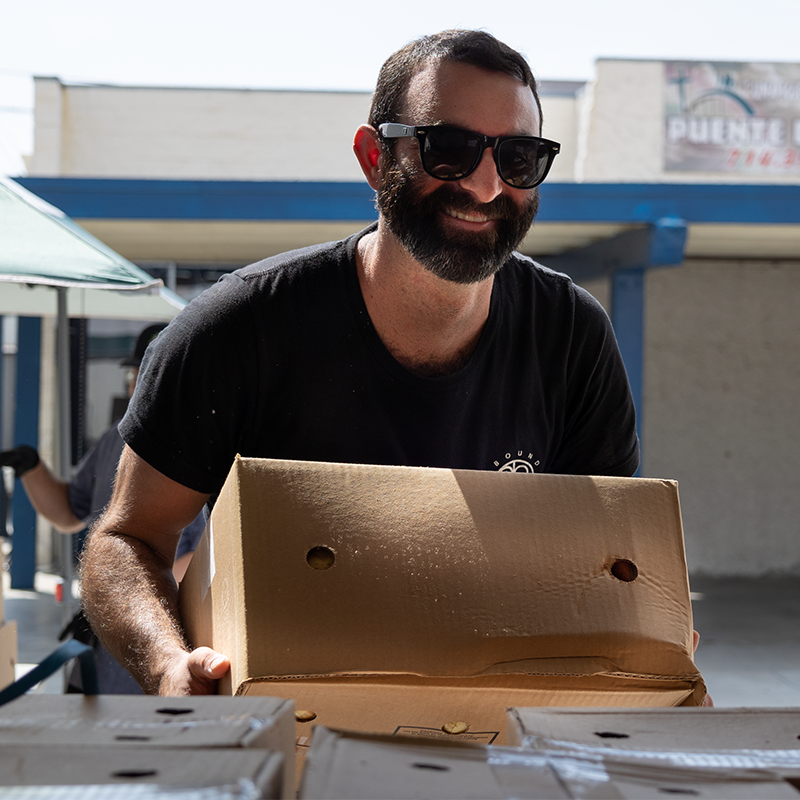Understanding CA SB-1383
An Overview of CA SB-1383
California is a leader in putting a focus on food recovery. CA SB-1383 is a state-mandated effort to reduce organic waste in California landfills by 75%, and to increase excess edible food recovery by 20% by 2025. The bill’s goal is to address greenhouse gas emissions, primarily methane gasses, while focusing on food insecurity throughout California. After all, food waste is the second largest contributor of organic matter in California landfills. This bill requires the re-direction of organic waste, specifically excess edible food, with Food Generators having to donate their excess edible food, rather than throw it away. All donations must be recorded and establishments need to be donating their excess edible food through a contracted Food Rescue Service or Food Recovery Organization, for example, Abound Food Care. But not just Food Generators are targeted with this bill, Jurisdictions also have a major role to play in the effort. Jurisdictions must establish an edible food recovery program through these same organizations, while working together to educate the region on SB-1383, enforce compliance, keep records, and implement effective solutions.
How will this help?
The success of CA SB-1383 will result in a healthier, cleaner environment, and fight the ever-growing problem in California: Food Insecurity. Over 9 million Californian’s (23%) do not know where their next meal will come from. Through SB-1383 enforcement, Jurisdictions, Food Donors, and Food Recovery Organizations alike can implement effective solutions that will utilize the mass amounts of excess edible food in the state, resulting in the food insecure receiving the nutrition they need, while contributing in the fight to lower greenhouse gas emissions.
Requirements
Jurisdictions must:
– Provide outreach to food establishments
– Track donation data
– Develop capacity by activating local resources
Refer to the Timeline of Requirements below:
SB-1383 Timeline of Requirements
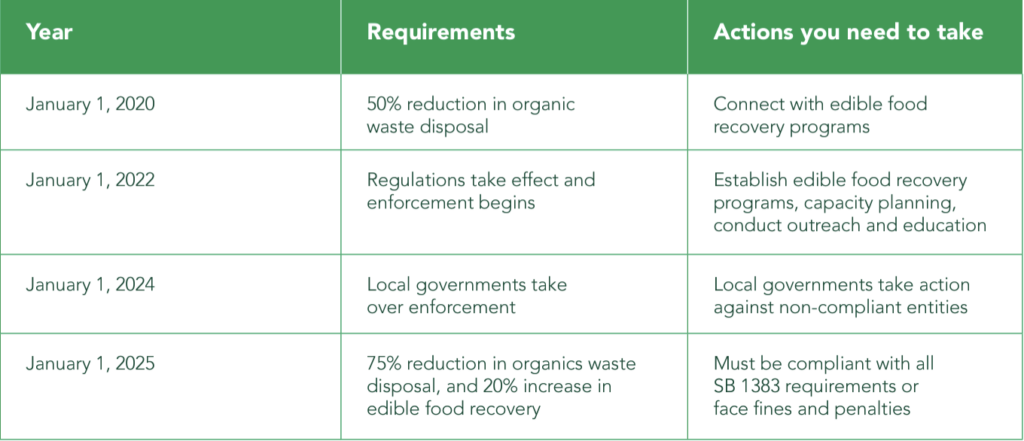
Click here to learn more
First, are you a Tier 1, or a Tier 2 generator? Refer to the chart below.
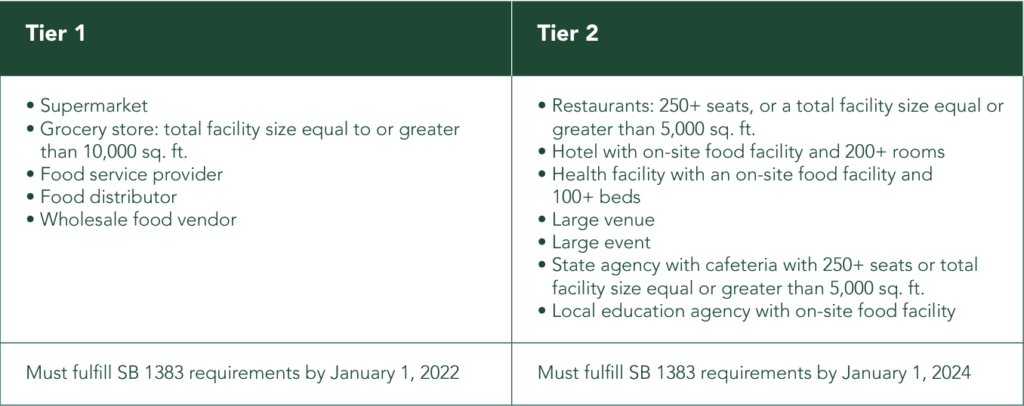
Next, refer to the SB-1383 Timeline of Requirements below:
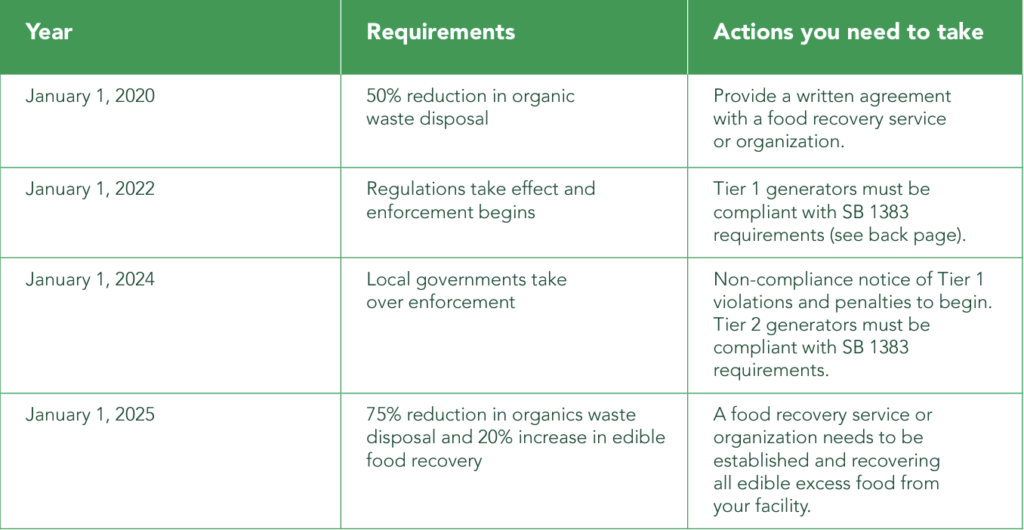
Click here to learn more
First, are you a Food Recovery Organization or a Food Recovery Service? Refer to the chart below:

Now refer to the SB 1383 Timeline of Requirements below:
